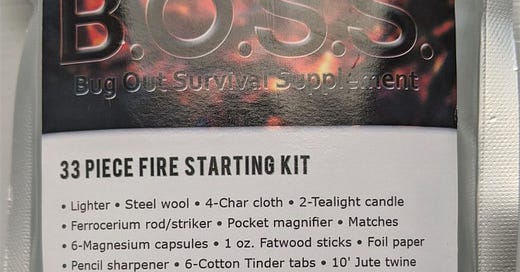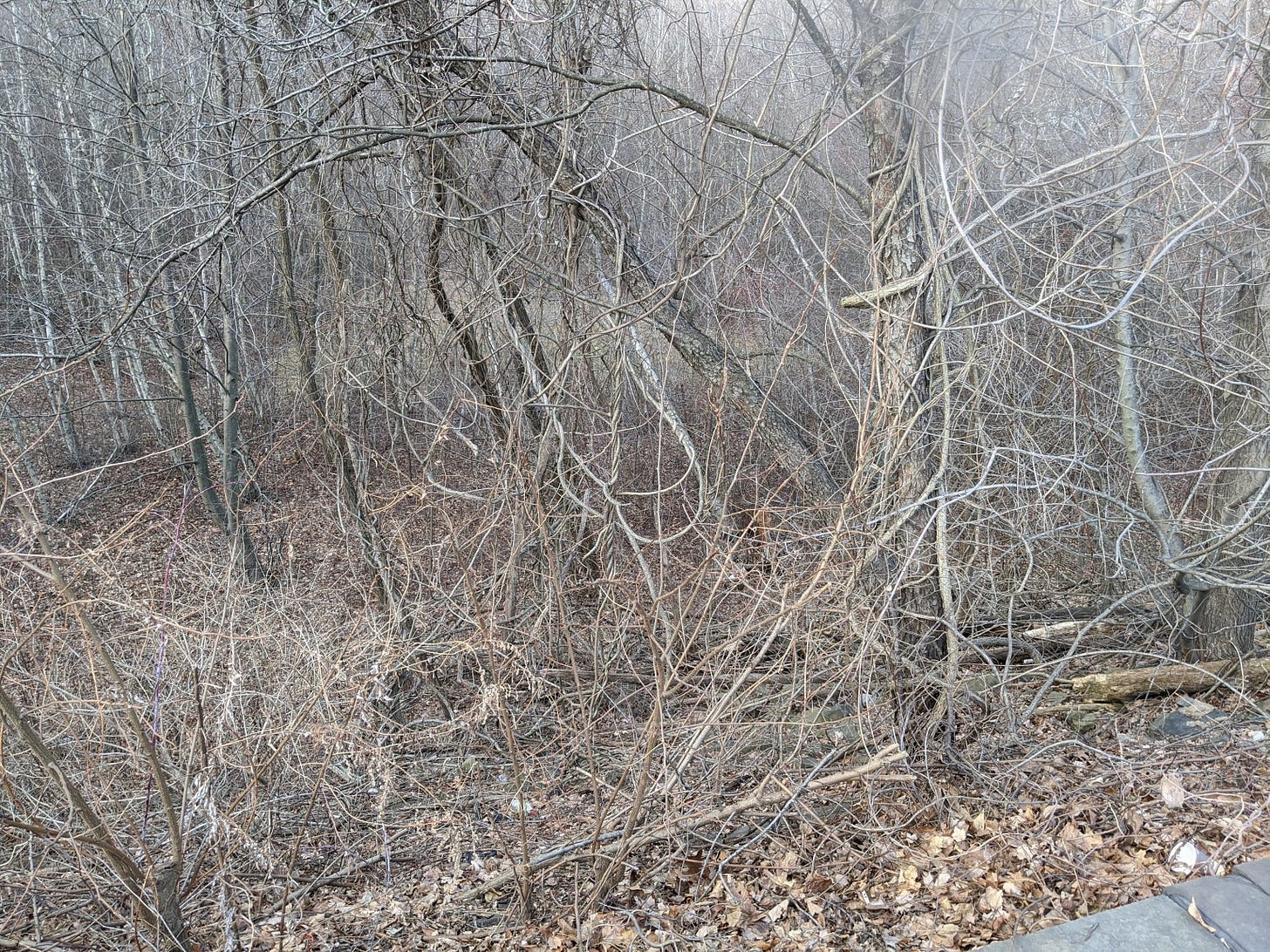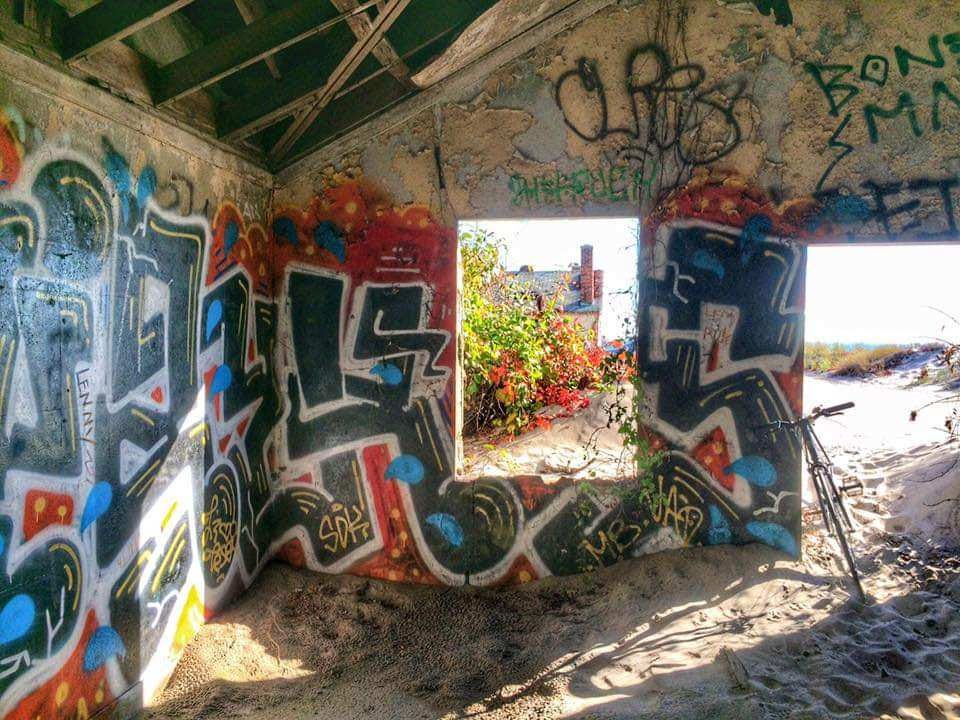Way way back in 2020, and revisited again on January 7, a friend and I were sharing a beer and discussing the possibility that dystopian novels may not be so far fetched after all. We’re fairly reasonable, level-headed people, but considering current life trends, and idle musing while drinking is fairly common. My friend mentioned a couple of nearby locations would make ideal places if it comes to that. He’s a photographer and an experienced urban archaeologist who regularly travels about snooping into hidden and/or abandoned parts of the world. I am intrepid even when common sense rules that I shouldn’t be and can pretty much suss out what’s okay to eat and make them palatable even if they’re not. Together we could possibly get our families through anything.
The following week we went to the old Ridgewood Reservoir in Queens. Built in 1858 to supply water to Brooklyn’s exploding population, it was in use until 1959 and eventually drained in 1989. Few other places in the city have turned so wild, a fine home, indeed, if society ever falls apart. My friend was a Boy Scout and might remember how the bark from the thicket of birch trees could be used to construct shelter. Food supply would include wild dogs, feral cats, squirrels, probably rats, plentiful ducks. Additional research would also be necessary to discern which weeds were edible. Enough water could be suppled by the sizable marsh spread out across the central basin if we remember to secure a water-purifying device.
But we decided we should concentrate on places closer to where we both live in Brooklyn. The Hole, a neighborhood inches over the Brooklyn border with Queens, is one of those weird places that, although people have lived there for forever, you don’t know about unless you’ve been told it exists. Every now and then some reporter/blogger wanders out there and responds with a mixture of disbelief and outrage. For starters, the neighborhood sits 30 feet below the surrounding area and lacks basic municipal infrastructure for drainage and sewage. The residents who call it home are understandably wary of strangers.
Creeks for streets, vacant lots turned to grassland, the place feels haunted. Various bodies of people who annoyed the Mafia were found buried in one of the fields, with the possibility of more spread around in others. The ghosts of the Federation of Black Cowboys remain in the stables taken away from them when the health of the horses came into question. There’s always a few nomads who park their mobile homes along the side road.
The true value of the Hole for survival purposes is in the abundant supply of abandoned houses hidden behind corrugated fences and overgrown fields. Among all my friend’s many talents, he’s a hell of a carpenter, and I’m pretty handy so long as you keep me away from power tools. We could certainly fix up several of these houses for a nice guarded compound. Rabbits, racoons and probably possums make good eating. Potable water is probably an issue but we’d also try to make an alliance with the locals and share what we ransacked from the nearby Food Emporium on the other side of Linden Boulevard.
Fort Tilden was our last consideration. You know the last scene in the original Planet of the Apes when Charlton Heston is bravely riding on a horse along a beach with his hot primitive girlfriend? Fort Tilden is a lot like that, a wreckage of a warrior time.
The re-enforced concrete bunkers and lookout towers would provide some pretty spectacular shelters. It’s a narrow strip of land between the sea and bay, making it vulnerable to climate change. In the short run, we’d have to confront that probability that, like all oceanfront properties, many people already have their eyes on the area. Food choices are limited, too. Neither of us are skilled fishers and the nearest market is in Breezy Point, locally known as the Irish Riviera. The little bungalow community is packed with generations of firefighters and police along with the kind of admirably hardy time-tested protect-our-own sort of people who helped each other rebuild after Hurricane Sandy decimated the island. Being Irish ourselves may provide us with some acceptance, but we wouldn’t be surprised if it didn’t.
We’ve become a little more optimistic about the world since then and we laughed about our search over another beer. But then last week my brother-in-law, who’s high up in the cybersecurity world, sent me a package, and now I just don’t know.
I hope you enjoy this serving of America Eats! We only grow by word of mouth, so please share this newsletter with someone you think might enjoy discovering bits and pieces of our country’s food culture and history!










